The 8 Best LastPass Alternatives to Manage Your Passwords
Using a secure password manager is just as important for your security as installing a quality antivirus suite, enabling two-factor authentication (2FA) on your accounts, and making regular backups.
Most people considered LastPass to be the king of password managers—it was packed with features and boasted more users than any of its competitors. However, in early 2021, LastPass placed some arduous restrictions on its free tier, forcing users to look elsewhere.
To help you make the jump, we've rounded up the best LastPass alternatives you can find right now.
1. KeePass
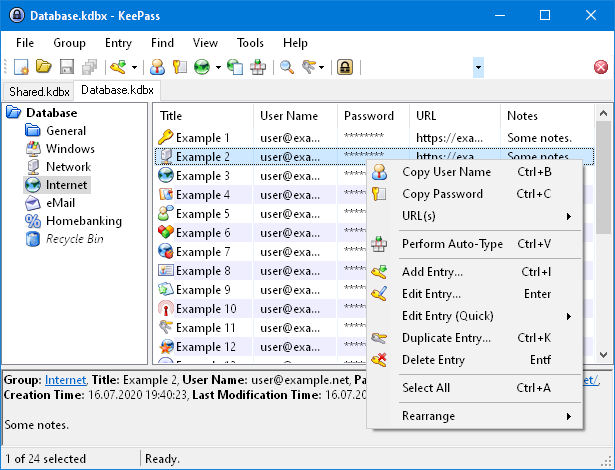
KeePass is entirely free, open-source, and all your data is saved locally rather than in the cloud.
The fact that it's open-source is important. If you're so inclined, it means you can check the source code of the app and ensure all the encryption methods are implemented correctly and operating perfectly.
Of course, locally-saved data isn't for everyone. If you regularly need to access your passwords on multiple computers and mobile devices, it's a pain. You will need to move your password database around from device to device manually.
From a security standpoint, KeePass uses the Advanced Encryption Standard (AES) and the Twofish algorithm, and it relies on SHA-256 to hash your data. Interestingly, it doesn't only encrypt your passwords—all the data fields (such as notes, usernames, etc.) within the app are also secured.
The app is portable, so you can carry it on a USB stick and run it on any Windows version without needing to go through an installation process.
2. Dashlane
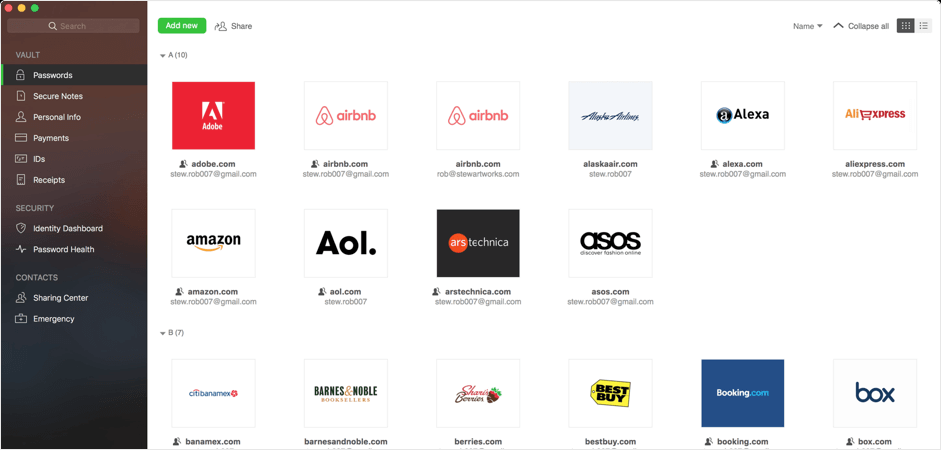
Dashlane is like LastPass in terms of functionality. Even the user interface is remarkably similar.
The app has five core features:
- Password Manager: Instantly save any password for any account.
- Form Autofill: If you do a lot of online shopping or regularly find yourself punching your address into online forms, the autofill feature will save you a lot of time.
- Digital Wallet: Not only will the digital wallet keep your payment details secure, but it also automatically captures the receipts of any online purchases you make.
- Password Generator: A password manager isn't going to help if all your passwords are "hello123". You need to create unique and complex strings for each individual account.
- Password Changer: The password changer can alter your weakest passwords without having to log into each account separately.
The free version limits you to one device, much like the new LastPass restrictions. You are also limited to 50 saved passwords.
There's also a premium version. It will set you back $39.99 per year but introduces syncing across multiple devices, account backup, two-step login authentication, and web access.
Dashlane comes into its own when accessing its security. It claims to have the strongest master password requirements in the industry, but more importantly, it also claims to have the best security architecture.
The developers filed a security patent to the U.S. Patent and Trademark Office in March 2012, which was granted in February 2016. The developers go into great detail about all features on the Dashlane website.
3. A Browser-Based Password Manager
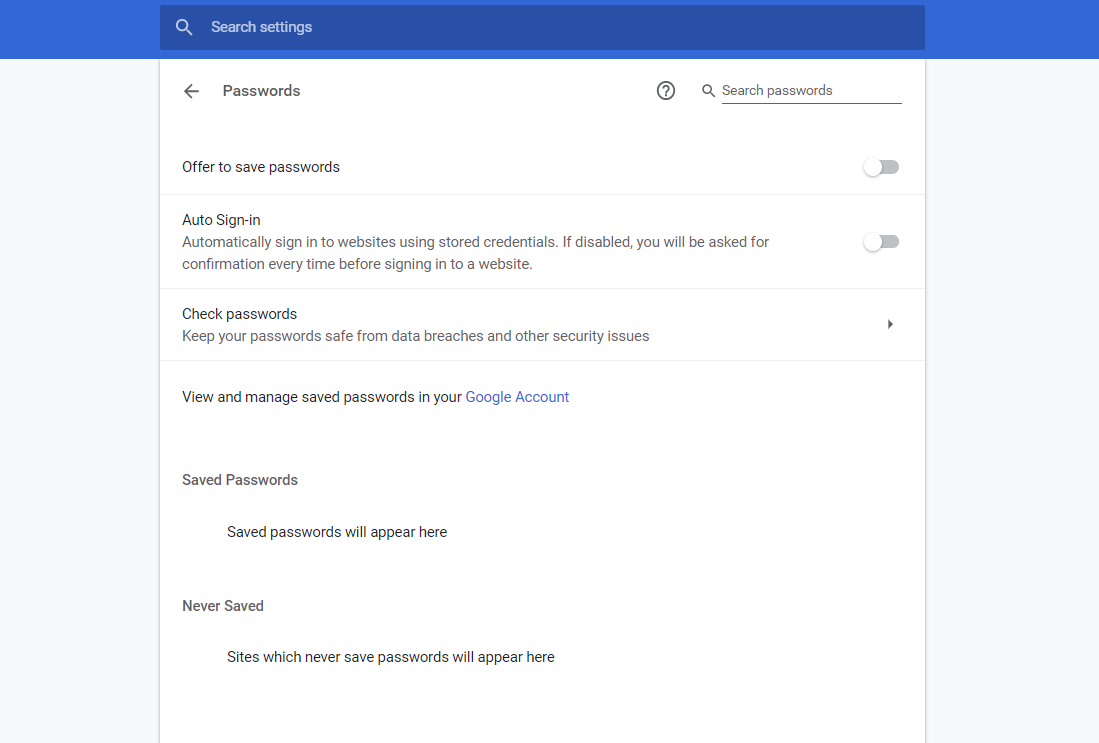
Most browsers have a password manager. Every time you enter a password, you will be asked whether you want the browser to remember it. These managers are convenient if you use the same browser on all your devices; all your logins will be automatically synced across all your devices without needing to install third-party apps.
The security of these managers varies widely from browser to browser. For example, the Firefox manager offers a master password option, whereas Chrome just automatically populates your credentials on sites.
Chrome does offer a "sync passphrase" so if someone has your master Google Account password, they still won't have access to your logins. Nonetheless, the bottom line is, none of the browser-based solutions offer the same level of security as a dedicated manager.
4. aWallet Password Manager
aWallet is a password manager for Android and iOS. There is no web version and no desktop version.
There are two versions of the app: a local version and a cloud version. The local version has no internet access permissions and saves all your sensitive data on your mobile device
The cloud version can sync your passwords, credit card details, and online banking credentials with either Dropbox or Google Drive so you can access them on several devices.
The app encrypts all data fields and relies on AES and Blowfish algorithms with key sizes of 256, 192, and 128 bits. As an extra level of security, the app will automatically delete your local password data file after a predefined number of unsuccessful login attempts.
Both the Android and the iOS versions require a one-off payment of $5.
5. Keeper
Keeper is a LastPass alternative that offers all the usual features you expect, but there is one function that makes it a worthy addition to this list.
It's the Keeper Family Plan. The developers understand that families share lots of digital things—whether it's Netflix passwords, email logins, or Xbox accounts. The Family Plan is their attempt to offer a secure solution for sharing.
You can add five users, each of whom gets a private vault and 10 GB of secure file sharing space. You can bounce passwords between vaults with nothing more than your fingerprint.
Best of all, the "legacy" feature lets you automatically share insurance forms, medical records, estate planning documents, tax documents, etc. with your next of kin if you pass away.
The individual plan is $30 per year; the family plan is $72 per year.
6. iCloud Keychain
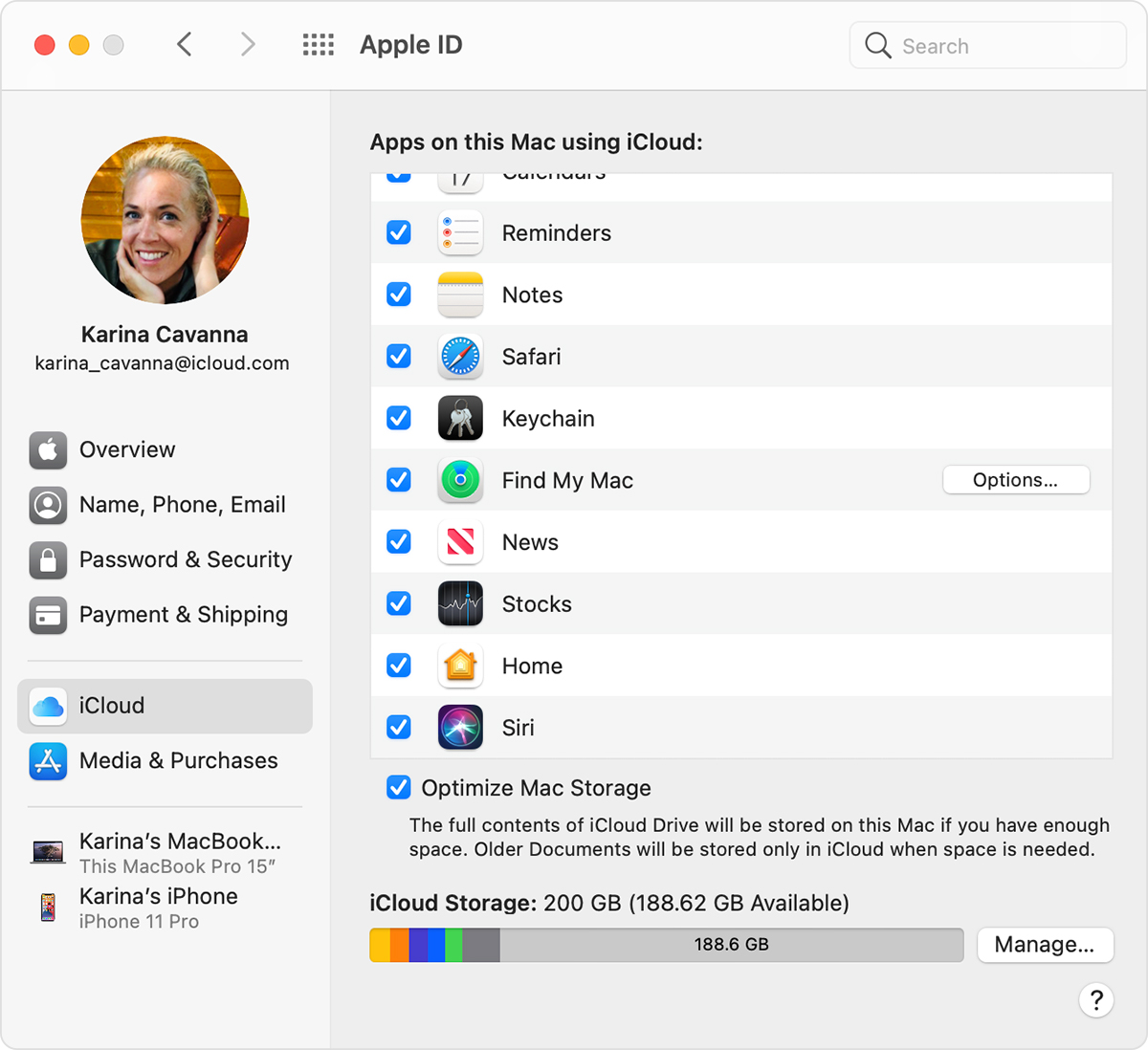
If you are an Apple user, you should consider iCloud Keychain.
Be aware, however, that Keychain can only auto-fill passwords in Apple's Safari browser. Therefore, if you use Windows or Linux devices, or want a solution that can fill in passwords on third-party apps on your mobile device, it is not suitable.
Keychain uses end-to-end encryption and will sync across all your devices, though you can also disconnect specific devices from your Keychain account while retaining a locally-saved copy.
7. Bitwarden
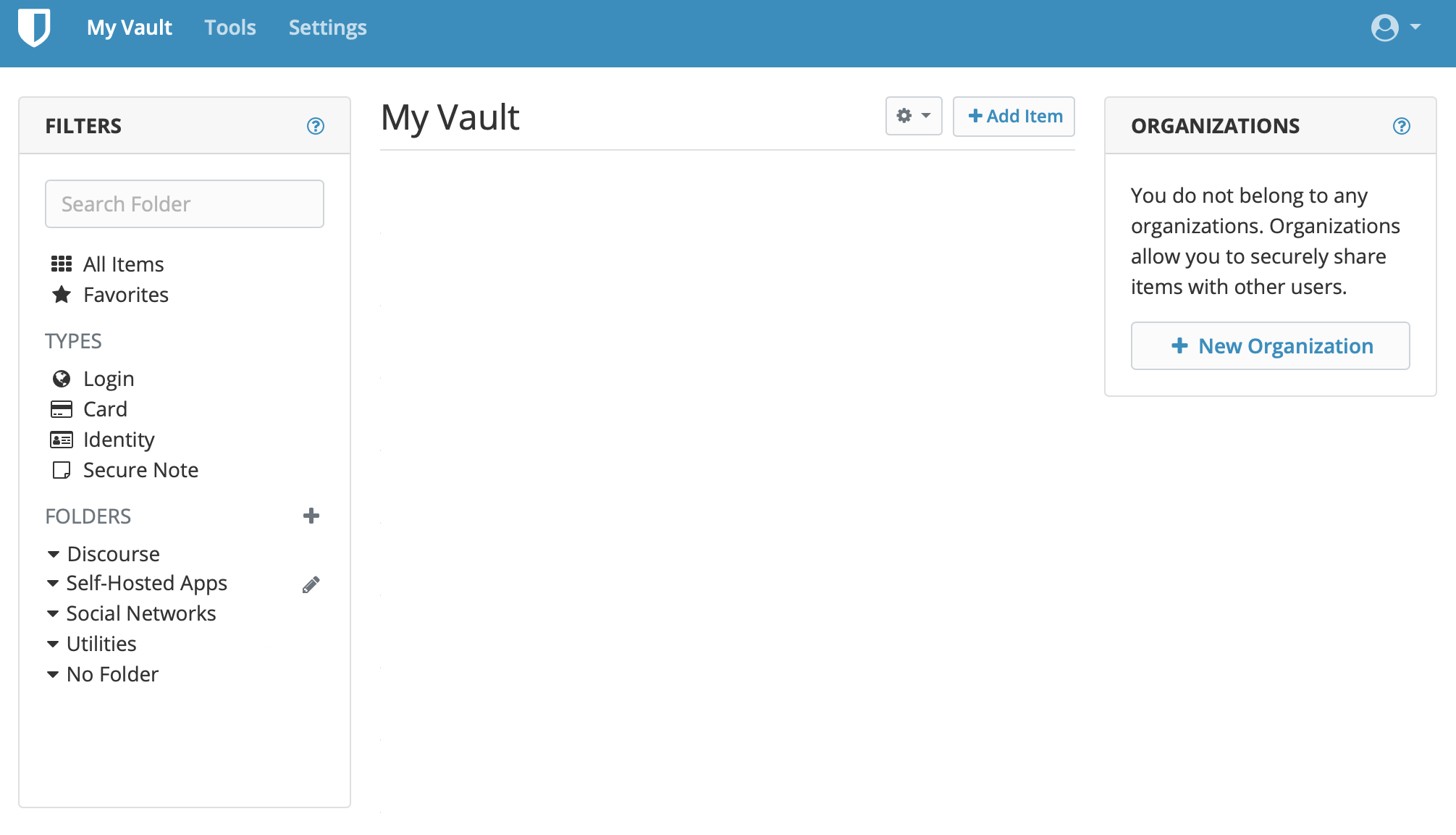
One of the best LastPass free alternatives worth considering is Bitwarden.
Although it has a paid option, the free tier includes syncing across all your devices. That's the newly missing feature from LastPass' free tier that has most angered users and is the one they are most keen to replicate.
Bitwarden Free does still have some restrictions, however. You can only add two users, there is no emergency access feature, and no API access. Basic 2FA is supported, but not YubiKey, U2F, or Duo.
8. 1Password
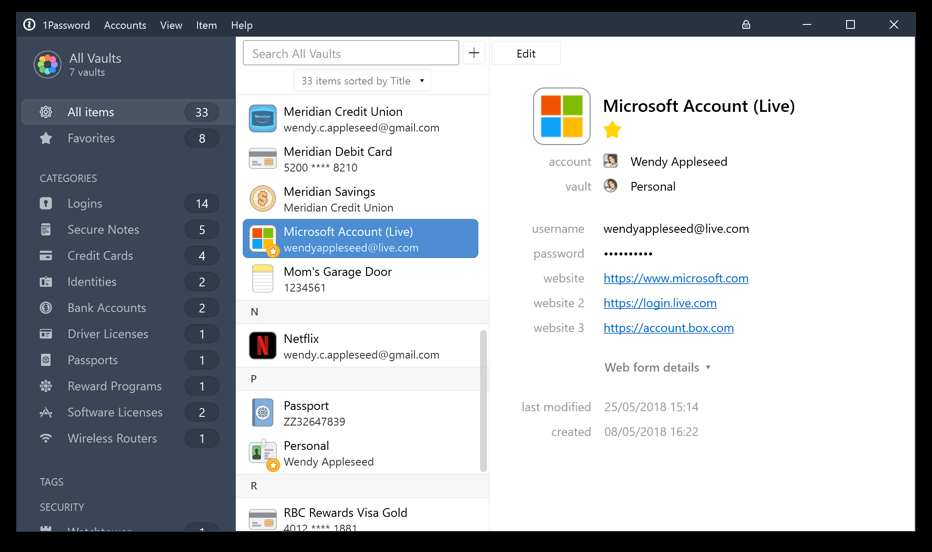
1Password is the self-titled easiest-to-use password manager available. Grandiose claims, but the process of adding and using passwords is certainly straightforward. The app also looks great, which is important for something you are likely to use every day.
You will need to pay for access. The free tier, which used to be popular, has been abolished. A free trial is still available, but thereafter, you will need to pay $3 per month.
Key features include unlimited password storage, 1 GB of document storage, a 365-day recycle bin to restore deleted passwords, and 2FA logins.
Export Your LastPass Data
Finally, if you are thinking about making the jump to a LastPass alternative but are worried about the migration process, don't be. LastPass lets you export your data and all the apps we have listed have an import feature.
You can be up and running on the new software in just a few minutes.
source https://www.makeuseof.com/tag/best-lastpass-alternatives/
Post a Comment for "The 8 Best LastPass Alternatives to Manage Your Passwords"
Comment when there are difficulties